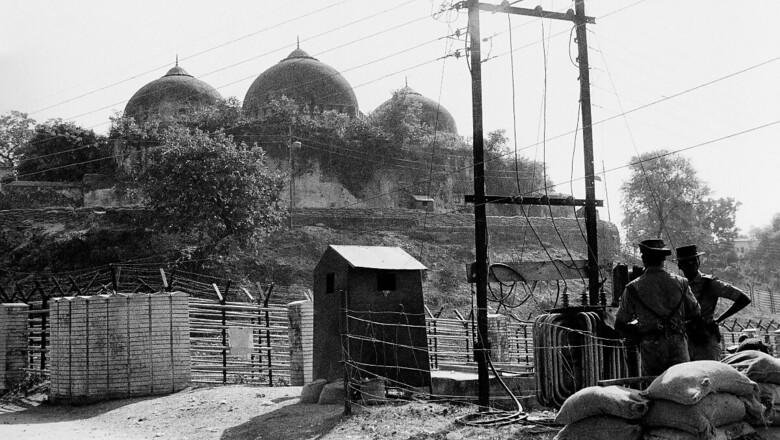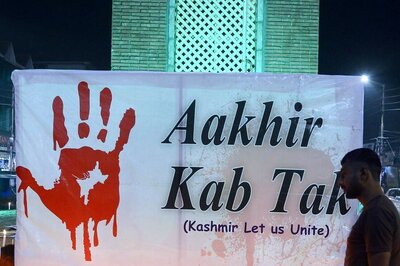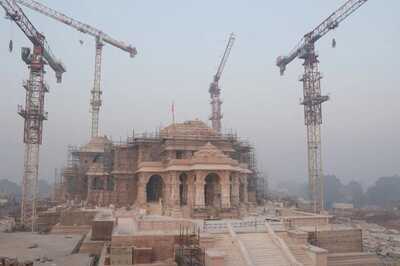Babri Demolition Verdict: Intel Inputs on Involvement of Pakistani Agencies Not Verified, Says Court

views
At least at three points in its Babri Majid demolition case verdict, the special CBI court emphasised that no follow-up was done on intelligence inputs that Pakistani agencies might have been involved in creating a ruckus at the disputed site during the 1992 kar seva.
Special judge SK Yadav highlighted lack of attention by law enforcement agencies as he dealt with the charges relating to criminal conspiracy against the accused, including senior BJP leaders LK Advani and MM Joshi.
The court noted that there were intelligence inputs received by the police that some anti-social and anti-national elements may join the congregation on December 6, 1992 on the pretext of kar seva.
They may even have explosives with them and could damage the disputed structure to create commotion and riots, as per the intel inputs. The judge noted that the then Inspector General of Police (Security) RC Malik was in receipt of such inputs and he had this information communicated across the state.
This information was also shared with the Principal Secretary, Home. “Despite having such important information, there was no deliberation on the relevant facts,” noted judge Yadav at one point in his verdict.
At another point, the judgment records that Principal Secretary, Home, received this note a day before the demolition about possible presence of agents of Pakistani intelligence agencies in the garb of being kar sevaks.
However, the court underlined that no relevant questions were put to any of the three relevant witnesses in this regard, namely the first informant, circle officer or the assistant commissioner of police of the district.
Judge Yadav cited three reports by the Lucknow Intelligence Unit that talked about the possibility of Pakistan secret service planting its men, as he lamented there is nothing to show this information was acted upon even as it was discussed in the meeting on security on December 5, 1992.
The court highlighted testimony of a CRPF officer, who said anti-social elements had joined the kar seva in disguise and then they attacked the structure.
Similarly, at another instance, the judge noted that there was an inspection of the site 10 days after the incident to examine if any explosives were used. But the court said neither the seized materials were produced during the trial nor were the relevant reports submitted in this regard authorised by any magistrate.




















Comments
0 comment